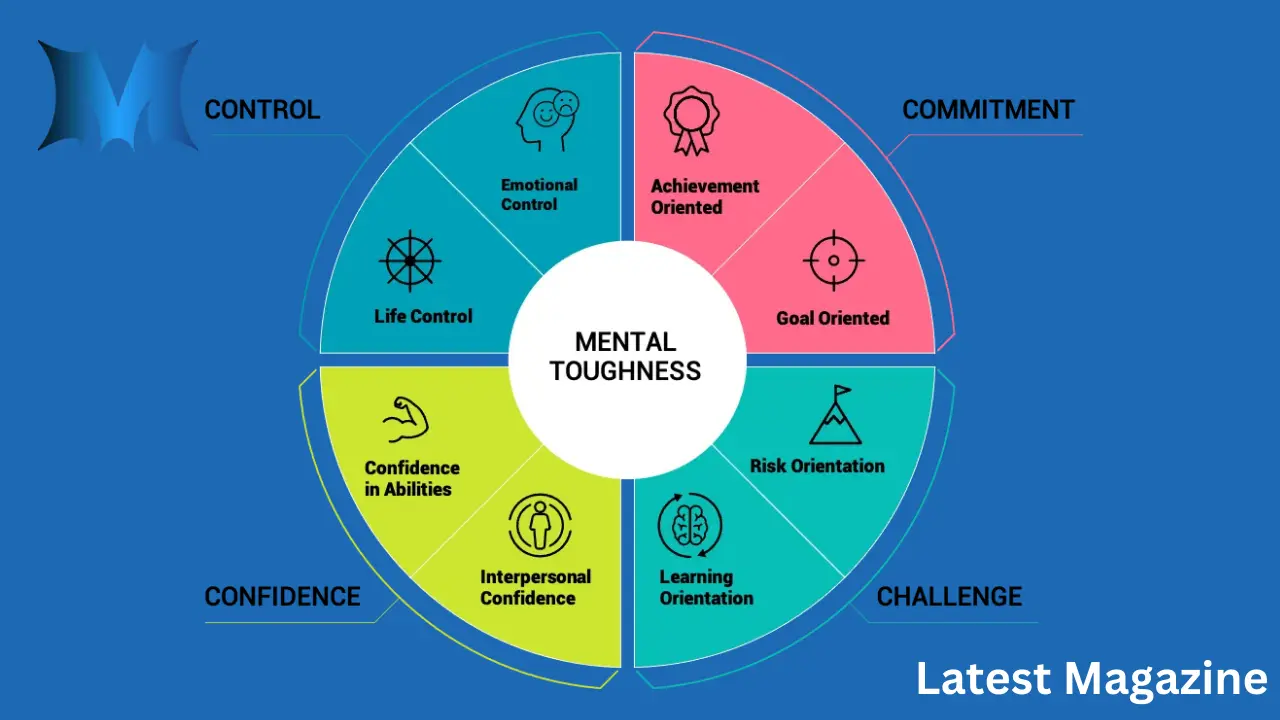Struggling academically is an experience that many students face at some point in their academic journey. It’s a topic that often carries a heavy emotional burden, filled with anxiety, stress, and a sense of failure. As students, we set high expectations for ourselves, hoping to achieve success in every class. But what happens when things don’t go as planned? What if you find yourself staring at failing grades, wondering how you’ll ever recover? This is a scenario that many can relate to, and it raises an important question: How I Sleep At Night Knowing l’m Failing All My Cl – Tymoff?
In this article, we’ll explore the emotional and psychological impact of academic failures, offering insights into how one can cope with such challenges. We’ll delve into practical strategies that can help you improve your academic standing while maintaining your mental well-being. Whether you’re currently facing academic difficulties or simply looking for ways to support others, this article aims to provide comprehensive guidance on navigating the complex emotions tied to academic struggles.
So, how do you sleep at night knowing you’re failing? The answer lies in a combination of self-acceptance, resilience, and actionable steps to turn things around. Let’s explore these concepts in detail, starting with the emotional toll that failing grades can have on your mental health.
The Emotional Toll of Academic Struggles
Failing classes can be a crushing experience, especially if you’ve always prided yourself on academic achievement. The feelings of disappointment, shame, and guilt can weigh heavily on your mind, affecting not just your self-esteem but also your overall mental health. The thought, “How I Sleep At Night Knowing l’m Failing All My Cl – Tymoff,” often lingers, turning into a constant source of stress that disrupts your peace of mind.
The emotional toll of academic struggles is not something to be underestimated. It can lead to a cycle of negative thoughts, where each failure seems to confirm your worst fears about your abilities and future prospects. You might find yourself questioning your worth, wondering if you’ll ever be able to recover from these setbacks. These feelings of inadequacy can be overwhelming, leading to increased anxiety and even depression.
The truth is, failing a class doesn’t just affect your grades; it impacts your entire sense of self. You may feel isolated, as if you’re the only one going through this, but it’s important to remember that you’re not alone. Many students face similar challenges, and the emotional impact is a shared experience. Acknowledging this can be the first step towards finding peace and understanding how to sleep at night, despite the failures.
Psychological Effects on Students
The psychological effects of academic failure are profound and can be long-lasting. When you repeatedly face poor grades, it’s easy to internalize these failures, leading to a diminished sense of self-worth. The phrase “How I Sleep At Night Knowing l’m Failing All My Cl – Tymoff” becomes a haunting reminder of your perceived shortcomings.
This constant stress can manifest in various ways. For some, it might lead to procrastination, where the fear of failing again causes them to avoid studying altogether. For others, it might result in perfectionism, where the need to succeed becomes so overwhelming that it’s paralyzing. Both of these responses are unhealthy and can further exacerbate the problem, creating a vicious cycle that’s difficult to break.
Moreover, the psychological toll can extend beyond the classroom. Students who are struggling academically may experience difficulties in their personal relationships, as the stress and anxiety spill over into other areas of their lives. They may withdraw from social activities, isolate themselves, or even develop sleep disturbances. The fear of failure can dominate their thoughts, making it challenging to find joy or relaxation in everyday activities.
Understanding these psychological effects is crucial in addressing the issue head-on. It’s not just about improving grades; it’s about healing your mind and finding a way to move forward with a healthier perspective.
Developing Mental Resilience

One of the most important factors in overcoming academic failure is developing mental resilience. Resilience is the ability to bounce back from setbacks, to face challenges head-on without letting them define you. It’s about finding the strength within yourself to keep going, even when things are tough.
Building mental resilience doesn’t happen overnight, but it’s a skill that can be cultivated with time and effort. Start by acknowledging your feelings. It’s okay to feel disappointed or upset about your grades, but it’s important not to dwell on these emotions. Instead, use them as motivation to improve. Remember, the phrase “How I Sleep At Night Knowing l’m Failing All My Cl – Tymoff” doesn’t have to be a source of dread; it can be a call to action.
One way to build resilience is through positive self-talk. Reframe your thoughts by focusing on what you can control. Instead of thinking, “I’m a failure,” try telling yourself, “I’m going through a tough time, but I’m capable of improving.” Positive affirmations like these can help shift your mindset from one of defeat to one of determination.
Another key aspect of resilience is setting realistic goals. Break down your academic challenges into smaller, manageable tasks. This not only makes the workload seem less overwhelming but also gives you a sense of accomplishment as you complete each step. Celebrate these small victories, as they are important milestones on your path to recovery.
Healthy Coping Mechanisms
Coping with academic failure in a healthy way is essential for your mental and emotional well-being. It’s tempting to fall into negative coping mechanisms, such as avoiding the problem, engaging in self-destructive behavior, or wallowing in self-pity. However, these approaches only serve to deepen the emotional pain and make it harder to recover.
Instead, focus on healthy coping strategies that can help you deal with the stress and anxiety of failing classes. One effective method is mindfulness. Practicing mindfulness involves staying present in the moment, acknowledging your feelings without judgment, and letting go of the constant worry about the future. Techniques such as deep breathing, meditation, or even a simple walk in nature can help center your thoughts and provide much-needed mental clarity.
Another healthy coping mechanism is seeking support. Whether it’s talking to a trusted friend, family member, or counselor, expressing your feelings can be incredibly cathartic. They can offer a fresh perspective, provide emotional support, and sometimes even help you come up with solutions to your academic challenges. Remember, you don’t have to go through this alone.
Engaging in activities that bring you joy is also crucial. Whether it’s a hobby, exercise, or creative outlet, taking time to do something you love can help you recharge and refocus. It’s easy to lose sight of the things that make you happy when you’re overwhelmed by academic stress, but maintaining a balanced life is key to coping with failures.
Time Management and Organization
Improving your academic standing starts with effective time management and organization. These are critical skills that can make a significant difference in your academic performance and overall well-being. When you’re struggling with classes, it’s easy to feel overwhelmed by the sheer volume of work, leading to procrastination and further stress. However, with the right strategies, you can regain control over your time and set yourself up for success.
The first step in improving time management is creating a study schedule. Start by listing all your upcoming assignments, exams, and deadlines. Break down larger tasks into smaller, more manageable parts, and allocate specific time slots for each. This not only makes the workload seem less daunting but also ensures that you’re consistently making progress. Use tools like planners, digital calendars, or time management apps to keep track of your schedule and stay organized.
Another important aspect of time management is prioritization. Focus on the tasks that have the most significant impact on your grades and tackle them first. It’s easy to get caught up in busy work or less important tasks, but prioritizing ensures that you’re spending your time and energy where it matters most. As you complete each task, cross it off your list – this simple act can provide a sense of accomplishment and motivate you to keep going.
Organization also plays a key role in academic success. Keeping your study space tidy and free from distractions can help you focus better and work more efficiently. Organize your notes, textbooks, and study materials so that everything you need is easily accessible. A clutter-free environment leads to a clutter-free mind, allowing you to concentrate fully on your studies.
Read Also: Shared Joy Is a Double Joy; Shared Sorrow Is Tymoff
Seeking Help and Resources
One of the most effective ways to improve academically is by seeking help when you need it. There’s no shame in admitting that you’re struggling; in fact, reaching out for assistance is a sign of strength and self-awareness. Whether it’s through tutoring, counseling, or utilizing online resources, getting the support you need can make a significant difference in your academic performance.
If you’re having difficulty understanding the course material, consider seeking help from a tutor. Many schools offer tutoring services, often free of charge, where you can get one-on-one assistance with subjects you find challenging. Tutors can provide personalized guidance, help clarify concepts, and work through problems at your pace. This targeted support can boost your understanding of the material and improve your grades.
Counseling services are another valuable resource. If you’re struggling with the emotional and psychological aspects of academic failure, talking to a counselor can provide you with coping strategies and mental health support. Counselors can help you navigate the stress, anxiety, and self-doubt that often accompany academic struggles, and they can work with you to develop a plan for moving forward.
Online resources can also be incredibly helpful. Websites, apps, and forums offer a wealth of information on various subjects, from study guides and practice quizzes to instructional videos and peer support groups. Utilizing these resources can enhance your learning experience and provide additional support outside the classroom.
Personal Experiences and Reflections
Personal experiences offer valuable insights into how students cope with academic failures. By sharing stories, we can learn from each other’s challenges and triumphs, and gain a deeper understanding of how to navigate our own struggles.
Consider the story of a student who once asked, “How I Sleep At Night Knowing l’m Failing All My Cl – Tymoff?” This student was facing a particularly tough semester, with multiple failing grades and a growing sense of hopelessness. The pressure was immense, and sleep became elusive as the weight of failure bore down each night. However, instead of succumbing to despair, the student chose to confront the situation head-on.
First, they acknowledged their feelings, understanding that it was okay to feel upset and frustrated. Then, they sought out resources, including tutoring and counseling, which provided the support needed to improve academically. They also implemented better time management practices and created a more structured study routine. Over time, these efforts began to pay off. The student’s grades slowly improved, and with them, the ability to sleep peacefully at night.
This story illustrates that even in the face of academic failure, there is a path forward. By taking proactive steps and seeking help, it’s possible to turn things around and find peace, even in difficult circumstances.
Finding Peace Through Acceptance

Acceptance is a powerful tool when dealing with academic failure. It’s about recognizing that setbacks are a natural part of life and that they don’t define your worth or potential. Accepting your current situation doesn’t mean giving up; rather, it means acknowledging where you are and committing to move forward in a positive direction.
The phrase “How I sleep at night knowing I’m failing all my classes – Tymoff” can take on a new meaning when viewed through the lens of acceptance. Instead of seeing it as a statement of defeat, consider it a declaration of resilience. Yes, you may be struggling now, but this is just one chapter in your academic journey. Accepting this reality allows you to focus on what you can do next, rather than being stuck in a cycle of regret and worry.
Self-compassion is a crucial aspect of acceptance. Be kind to yourself during this time. Understand that everyone makes mistakes and that failure is not a reflection of your character or capabilities. By treating yourself with the same kindness and understanding you would offer a friend in a similar situation, you can begin to heal and regain confidence.
Creating a Plan for Academic Recovery
Once you’ve accepted your situation, it’s time to create a plan for academic recovery. This involves setting clear, achievable goals and outlining the steps you need to take to reach them. A well-thought-out plan not only helps you regain control but also provides a roadmap for improving your academic performance.
Start by assessing where you are currently. Identify the specific areas where you’re struggling and determine what factors contributed to your poor performance. Was it a lack of understanding of the material, poor time management, or perhaps external factors like personal issues or health problems? Understanding the root causes of your academic difficulties is crucial for developing an effective plan.
Next, set specific goals for improvement. These goals should be realistic and measurable, such as aiming to pass a particular class with a certain grade or improving your study habits by dedicating more time each day to review the material. Break down these goals into smaller, manageable tasks, and set deadlines for each.
Once your goals are in place, outline the steps you need to take to achieve them. This might include seeking help from tutors, attending additional study sessions, or improving your time management and organization. Having a clear plan of action gives you direction and helps you stay focused on your recovery journey.
Maintaining a Balanced Life
As you work towards academic recovery, it’s important to maintain a balanced life. It’s easy to become consumed by the desire to improve your grades, but neglecting other aspects of your life can lead to burnout and further stress. Balance is key to sustaining long-term success, both academically and personally.
Make time for activities that bring you joy and relaxation. Whether it’s spending time with friends and family, pursuing a hobby, or simply taking a break to unwind, these activities are essential for your overall well-being. They provide a much-needed mental break from the pressures of school and help you recharge.
Physical health is also an important part of maintaining balance. Regular exercise, a healthy diet, and adequate sleep are all crucial for your mental and physical well-being. When your body is well-nourished and well-rested, you’re better equipped to handle the challenges of academic life.
Finally, practice mindfulness and self-care. Taking time each day to focus on your mental health, whether through meditation, journaling, or simply reflecting on your thoughts and feelings, can help you stay grounded and resilient in the face of academic challenges.
Conclusion
Failing classes is undoubtedly a difficult experience, one that can shake your confidence and cause significant emotional and psychological stress. However, it’s important to remember that failure is not the end of the road. With the right mindset, strategies, and support, you can overcome academic setbacks and emerge stronger and more resilient.
By understanding the emotional toll of academic struggles, developing mental resilience, adopting healthy coping mechanisms, and creating a plan for recovery, you can begin to turn things around. Acceptance and self-compassion play a key role in this process, allowing you to move forward with confidence and peace.
Remember, how you sleep at night knowing you’re failing all your classes is not just about your grades; it’s about your overall well-being. By prioritizing your mental health, seeking help when needed, and maintaining a balanced life, you can navigate these challenges and find a path to success.

